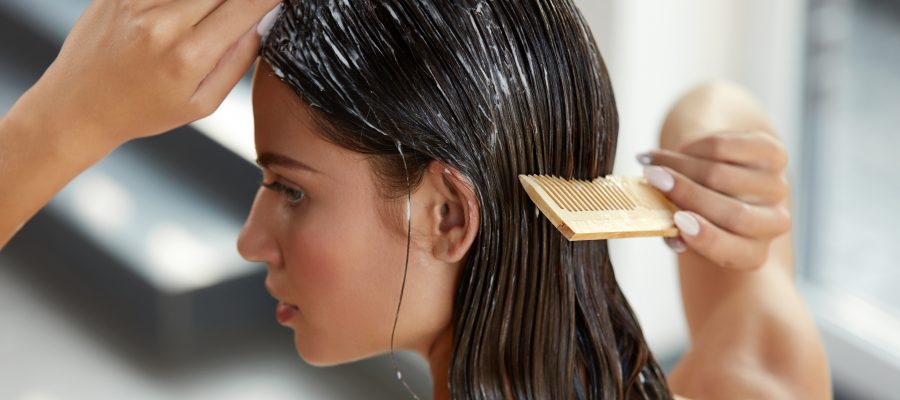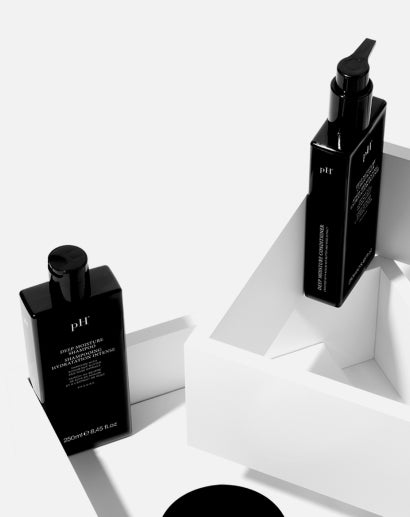Exploring Silicone Ingredients in Hair Care

Silicones are nearly ubiquitous in the beauty industry. It’s almost harder to find a product that doesn’t include silicone. However, its presence doesn’t come without controversy. So what’s the deal with silicone? Is it good or bad…or maybe just a very misunderstood ingredient? For that reason, silicone is an ingredient worthy of a deep dive.
What is Silicone?
This is a bit of a complex answer, especially because silicone isn’t a single ingredient. It’s actually a category of ingredients that range all the way from sealants and insulation to substances that evaporate that make your hair and skin products more slippery, and anywhere in between.
Silicones that we use in hair care are lab created ingredients derived from silica similar to sand.
We use silicones in hair products because it is one of the best occlusive ingredients. This means it creates a protective film on the hair that acts as a barrier between humidity, heat, and harsher elements in the environment. They have frizz taming abilities, are thermal protective, prevents tangles, creates slip in the hair, and makes hair shiny, soft and provides a healthy feeling.
Three Types of Silicones in Hair Care
Water soluble silicones
These are lighter silicones that dissolve easily in water. They’re still occlusive but not as much so as non water soluble silicones. However, they are very easily removed from the hair. Examples of these silicones generally start with the prefix PEG- or are chemical variations of dimethicone such as amodimethicone, stearoxy dimethicone, dimethicone copolyol.
Non-water soluble silicones
These silicones are not dissolvable in water. In fact, they require a detergent to break down to dissolve in water. They’re very effective at frizz control in humidity. Examples are dimethicone, dimethiconol, stearyl dimethicone, cetyl dimethicone, cetearyl dimethicone, amodimethicone, cyclopentasiloxane, and behenoxy dimethicone.
Evaporating silicones
This type of silicone evaporates as the hair dries. Therefore there is no need to remove this silicone from the hair. Generally we use these products because they make products easier to distribute through hair. Examples of these products are cyclomethicone, cyclopentasiloxane, and cyclomethicone.
SIlicone’s Problems
Now that we understand what silicones are for and how we use them, let’s talk about some of the problems. Non-water soluble silicones, especially in fine hair, can lead to buildup if not properly cleansed. This hinders oxygen transfer, prevents absorption of natural oils, and may result in scalp issues, dandruff, hair shedding, and weakened strands. Applying an occlusive over uncleansed hair or skin can trap bacteria and toxins, causing infection and cellular damage.
It’s important to note that this issue isn’t exclusive to silicones. This is true of any ingredient that is non-water soluble. Natural oils, when not properly diluted with carrier oils, can lead to comparable problems. The key lies in how it is balanced in the overall formula and following an appropriate product routine. While silicones are clinically proven to be safe and effective, the success of modern professional hair care formulas depends on proper balance and compatibility with newer, gentler surfactants, ensuring easy removal during shampooing.
Products Formulated to Reduce Product Buildup
If you use a ton of smoothing products, we recommend using an exfoliating product in your routine. Sachajuan Scalp Scrub is designed to mechanically exfoliate dead cells and product build up from the scalp in a gentle way. Following, Sachajuan Anti Pollution Shampoo and Anti Pollution Conditioner uses alpha-hydroxy acids to exfoliate and hydrate the hair at the same time.
Related posts

Luxury Beauty Supplies for Licensed Beauty Professionals.
Beauty enthusiasts, find your adored luxury beauty brands at SAYN.




